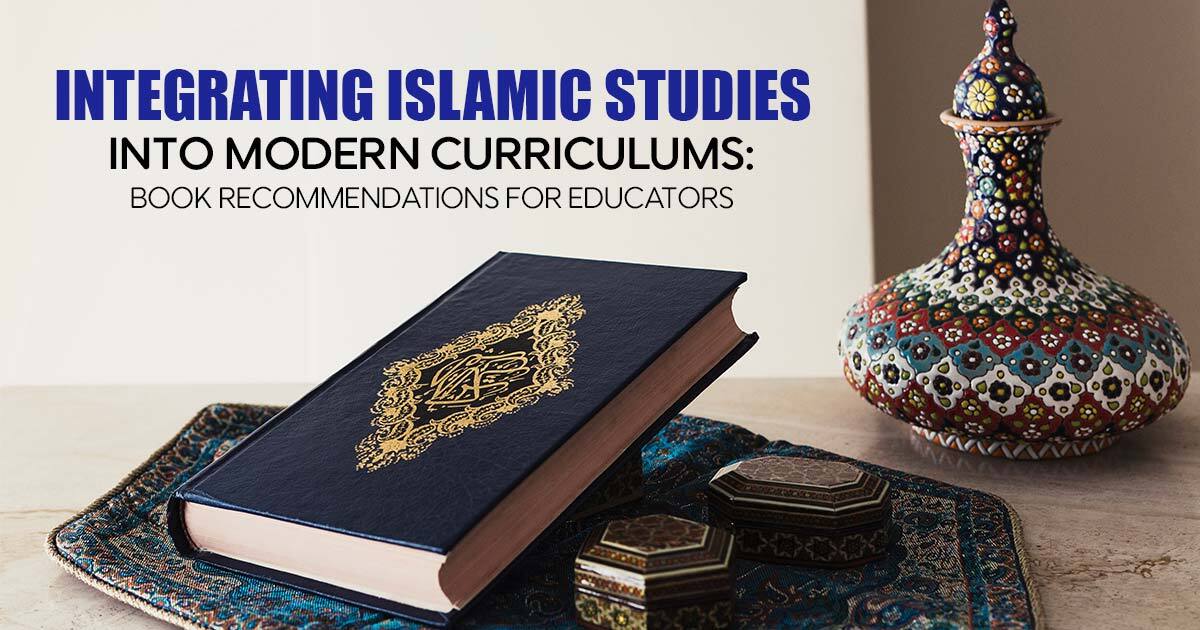In an increasingly interconnected world, fostering a well-rounded education that acknowledges diverse cultures and belief systems is crucial. Islamic Studies plays a vital role in this endeavor, offering a rich tapestry of knowledge, history, and ethics. Integrating Islamic Studies into modern curriculums isn’t just about religious instruction; it’s about fostering critical thinking, cultural understanding, and responsible global citizens.
This blog by Darussalam Publishers serves as a guide for educators seeking to introduce or expand Islamic Studies within their curriculum. We’ll explore the benefits of integration, practical approaches, and valuable book recommendations across different age groups.
Why Integrate Islamic Studies?
There are numerous compelling reasons to integrate Islamic Studies into modern curriculums:
- Promote Religious Literacy: Understanding Islam allows students to engage with one of the world’s major religions, fostering respect and tolerance.
- Develop Critical Thinking Skills: Islamic Studies encourages critical analysis of religious texts and historical events, honing critical thinking and problem-solving abilities.
- Enhance Cultural Understanding: By delving into Islamic art, architecture, and contributions to science and philosophy, students gain a deeper appreciation for diverse cultures.
- Promote Social Cohesion: In today’s globalized world, understanding Islam helps bridge cultural divides and create inclusive learning environments.
- Nurture Ethical Values: Islamic teachings emphasize principles like social justice, compassion, and stewardship of the environment, fostering ethical and responsible individuals.
Practical Approaches for Integration:
Integrating Islamic Studies doesn’t require a complete overhaul of your existing curriculum. Here are some practical approaches:
- Thematic Integration: Align Islamic concepts with existing curriculum themes. For example, discuss Islamic perspectives on environmental stewardship during a science unit on climate change.
- Historical Context: While studying historical events, explore the role of Islamic civilizations and their contributions to various fields.
- Comparative Religion: Foster interfaith dialogue by comparing and contrasting Islamic beliefs with other major religions.
- Guest Speakers: Invite members of the local Muslim community to share their experiences and answer student questions.
- Literature and Arts: Integrate Islamic poetry, calligraphy, or architecture into art and literature lessons.
- Cross-curricular Activities: Develop projects that combine Islamic Studies with other subjects, such as creating a timeline of scientific advancements during the Islamic Golden Age.
Remember: When integrating Islamic Studies, ensure age-appropriateness and focus on core principles and practices.
Book Recommendations for Different Age Groups
Early Childhood (Ages 5-8):
- “My First Book of Ramadan” by Lindsey Pogue (A colorful introduction to Ramadan traditions and celebrations)
- “Look at the Deen: Manners for Little Muslims” by Zaneb Khan (Teaches basic Islamic manners through engaging rhymes)
- “Whoever Helps a Believer…” by Na’ima bint Robert (Emphasizes the Islamic value of helping others)
Middle School (Ages 13-15):
- “Lost on the Silk Road” by Wendy Katzman (A historical fiction story set during the Islamic Golden Age)
- “We Believe in One God: Exploring Islam” by Anna Contadini (Explores key Islamic beliefs and practices)
- “The Islamic World in 50 Objects” by Robert O. Collins (Uses a variety of objects to tell the story of Islamic civilization)
High School (Ages 16-18):
- “No God But God: The History of Islam” by Reza Aslan (A comprehensive overview of Islamic history and thought)
- “Islam: An Introduction” by Mohammad Hassan Khalil (Explores core Islamic concepts and their application in contemporary life)
- “Women and Islam” by Leila Ahmed (Examines the role of women in Islamic history and society)
Additional Tips:
- Look for books with diverse representations and perspectives within Islam.
- Incorporate age-appropriate primary sources like Quran excerpts or historical documents.
- Encourage critical thinking by having students analyze information and form their conclusions.
Conclusion:
Integrating Islamic Studies into modern curriculums is a rewarding endeavor that fosters well-rounded global citizens. By promoting religious literacy, critical thinking, and cultural understanding, educators can equip students with the tools they need to navigate our diverse world. This guide provides a starting point, but remember, the journey of integrating Islamic Studies is an ongoing process. Embrace creativity, cater to your students’ needs, and most importantly, foster a spirit of open-mindedness and respect within your classroom.
FAQs About Integrating Islamic Studies into Modern Curriculums:
Isn’t Islamic Studies just for Muslim students?
Islamic Studies offers valuable insights for all students. It promotes religious literacy, cultural understanding, and critical thinking skills that benefit everyone, regardless of their religious background.
How can I ensure my approach to Islamic Studies is respectful and accurate?
Seek out reputable resources and consult with members of your local Muslim community. There are also many online resources from credible Islamic organizations.
What if I don’t feel comfortable teaching about a religion I’m not familiar with?
Use this as an opportunity to learn alongside your students! There are many resources available for educators seeking to learn more about Islam.
Are there any potential challenges to integrating Islamic Studies?
There might be some initial discomfort or lack of familiarity with the topic. However, open communication with parents, students, and the school administration can help address these concerns.
Where can I find more resources?
Several organizations offer resources, including lesson plans and professional development:
- The Council on Islamic Education (CAIR)
- The Islamic Society of North America (ISNA)
- The Yaqeen Institute for Islamic Research



